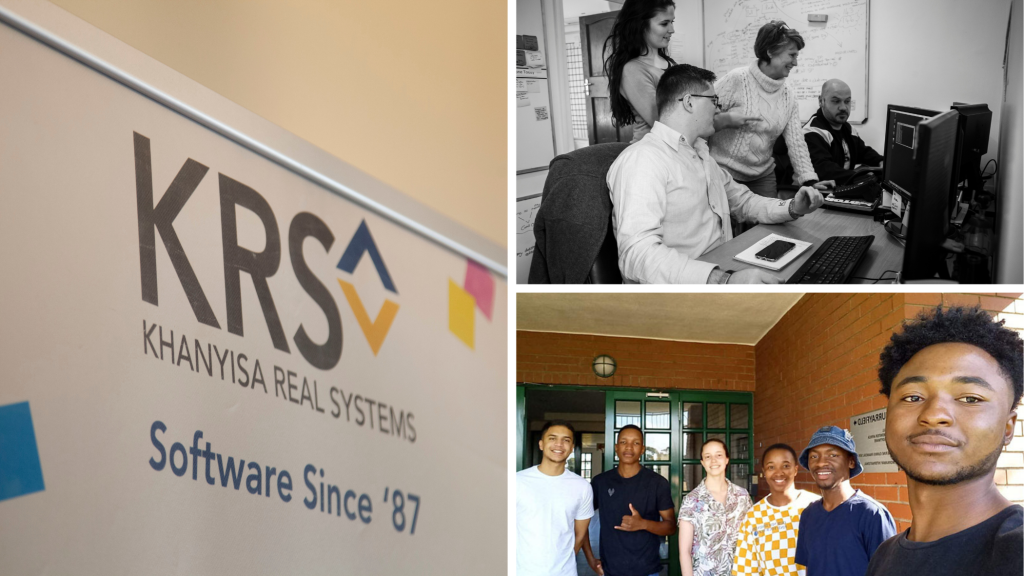
Starting a new job can feel like stepping into unknown territory, especially when stepping into a fully remote onboarding process. There’s a lot to take in: new systems, unfamiliar processes, and new people, all while trying to find your place in a team that already has its own rhythm. Add to that the pressure of making a strong first impression in a fully remote environment, and it’s easy to feel uncertain or even question whether you belong.
At KRS, we don’t pretend to have all the answers. We’re still learning and experimenting with what good onboarding looks like in a remote-first company. What we do know is that those first 30 days shouldn’t be filled with stress and self-doubt. It should be a time of learning, reassurance, and building confidence.
That’s why we’ve been shaping an onboarding experience that’s thoughtful, people-centred, and constantly evolving.
Building Connection in Remote Onboarding
When someone joins KRS, they’re not just stepping into a role; they’re stepping into a fully remote company. That means there aren’t the natural office moments, a chat in the kitchen, a walk to lunch, or a quick question at your desk. Connection must be intentional.
We’ve also learnt, especially in South Africa, that the legacy of exclusion and inequality still shapes how people experience opportunity. That awareness matters to us. It’s why we try to welcome people with care, patience, and understanding. Everyone comes in with their own story, their own history, and sometimes their own doubts. We want to make sure that from day one, people feel seen, heard, and valued.
Onboarding Best Practices for the First 30 Days
We’ve found three factors that make the biggest difference in a new hire’s first month: hands-on learning, mentorship and support, and building confidence early. We don’t always get it perfectly right, but these principles guide us.
1. Hands-On Training for New Hires
We’ve learnt that people don’t settle in by watching from the sidelines. They settle in when they start doing. That’s why we give new hires small but meaningful tasks from their very first week. Sometimes that’s shadowing a project. At other times, it’s contributing to a client deliverable, or even just running a short internal update.
It’s not about proving yourself. It’s about giving people a chance to contribute early, to feel included, and to build confidence one small step at a time. And yes, sometimes those first tasks feel messy or overwhelming. But we’ve seen how important those early wins are in reducing imposter syndrome and creating a sense of belonging.
2. Mentorship and Support
Starting somewhere new often feels like learning a new language. Acronyms, tools, inside jokes, ways of working – it can all be confusing. That’s why we pair every new hire with a mentor.
Our mentors are available to support, answer the “silly” questions, share how things really work, and provide reassurance when the learning curve feels steep. More than anything, mentors remind people they don’t have to figure it out alone.
3. Building Confidence Early
Confidence doesn’t just appear. It builds. We’ve learnt that setting small, achievable milestones helps. By the end of their first month, we’d love new hires to:
- Get comfortable with our core tools and workflows
- Take part in team meetings and regular practices
- Deliver something small but real in their role
This replaces anxiety with clarity, giving people a genuine sense of progress.
Remote Work Tools & Systems for Success
In a remote company, tools are our office. Getting familiar with them can feel daunting, so we try not to throw everything at new hires on day one. Instead, we introduce the systems in stages and explain how they fit into our daily work.
We’ve also realised it’s not enough to know how a tool works. You need to understand how to use it well. That’s why we share tips, shortcuts, and lessons from our own trial and error.
Living Our Values Through Onboarding
Culture isn’t something you read in a handbook. It’s something you experience. At KRS, we’re striving to create a culture where people feel comfortable asking questions, sharing ideas, and challenging assumptions. That doesn’t happen overnight, but we see onboarding as the start of that journey.
We’ve found that certain routines help:
- Daily stand-ups: short check-ins to align and surface blockers
- Weekly check-ins: deeper conversations about progress and priorities
- Retrospectives: a space to reflect on what’s working and what isn’t
By creating these rhythms, we keep the door open for communication, accountability, and care.
What Success Looks Like After 30 Days
By the end of the first month, we hope new hires:
- Understand how their role contributes to team goals
- Have built relationships across the company, not just with their mentor
- Started a conversation about their growth and career journey
Sometimes people get there in 30 days, sometimes it takes longer, and that’s ok. We know settling in isn’t the same for everyone. What matters is that people feel supported as they figure it out.
Why Thoughtful Onboarding Matters at KRS
We know that imposter syndrome is real. We know that remote work can make you feel invisible. We also know that South Africa’s history has taught us how important belonging, care, and fairness are in the workplace.
That’s why we approach onboarding not as a polished process, but as a learning one. We make mistakes, we adjust, and we keep trying to create an environment where people can feel confident to speak up, connected, and clear on where they fit.
Onboarding as a Long-Term Growth Journey
Onboarding at KRS isn’t just about the first 30 days. It’s about starting a longer journey with us. We don’t have all the answers, but we care deeply about learning together, supporting each other, and building something meaningful along the way.
If that’s the kind of environment you want to grow in, we’d love to hear from you. Get in touch today!


